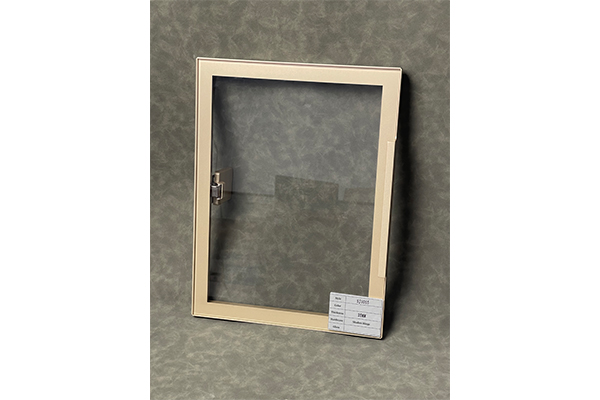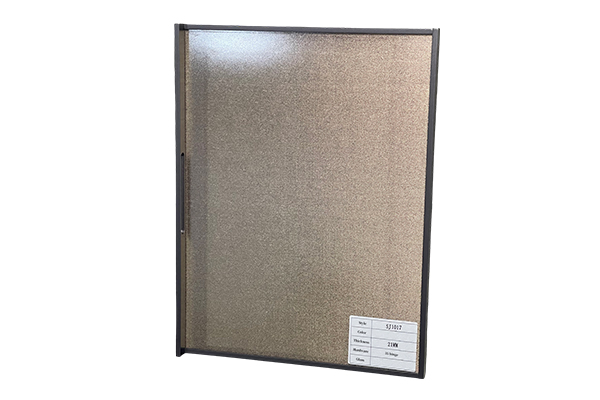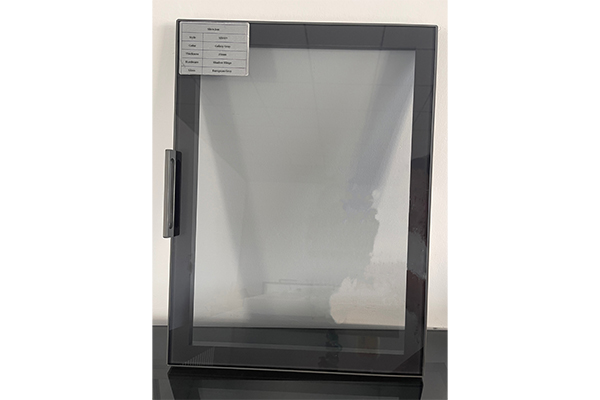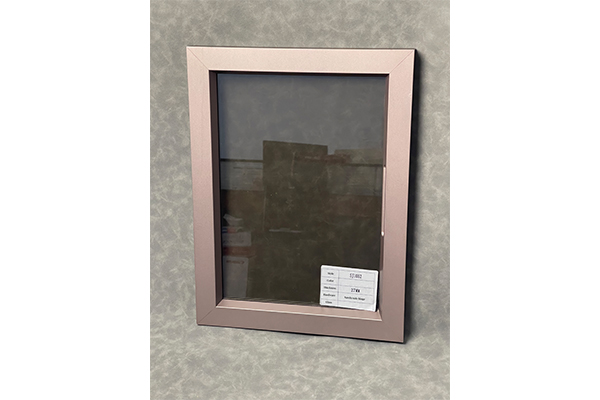The aluminum frame glass door shakes or makes unusual noises. Which parts may be faulty?
Release Time : 2025-07-22
The shaking or abnormal noise of aluminum frame glass door is often related to the looseness or wear of key connecting parts, and the core structures that are easy to wear need to be checked one by one. Hinge is the core component connecting the door frame and the door leaf. If the fixing screws become loose after long-term use, the gap between the door leaf and the door frame will become larger, and shaking will occur when opening and closing. If the hinge shaft core lacks lubrication or becomes stuck due to wear, it will make a "creaking" sound when turning. Especially in the case of frequent opening and closing, this abnormal noise will become more obvious as the degree of wear increases.
Floor spring is the key to the load-bearing of push-pull aluminum frame glass door. If the internal piston seal fails, the supporting force will decrease, the door leaf will sag under the action of its own weight, and then rub against the ground or door frame, causing shaking and friction. If the adjustment screw of the floor spring is loose, it will not be able to stably control the return speed of the door leaf, and it will also cause the door body to sway left and right during the closing process, colliding with the frame to produce abnormal noise. In addition, dust or impurities entering the floor spring will affect the smoothness of the piston movement, causing jamming and abnormal noise when the door leaf rotates.
If there is a problem with the connection between the glass and the aluminum frame, it will also cause shaking and noise. The glass and the aluminum frame are usually fixed with sealant or rubber strips. If the sealant ages and cracks, or the rubber strip loses its elasticity due to long-term extrusion, a gap will appear between the glass and the aluminum frame. When the door body shakes, the glass and the aluminum frame will collide and make a "clicking" sound. Some aluminum frame glass doors use screws to fix the glass. If the screws are loose or the gaskets fall off, the glass will be unstable, not only causing shaking, but also causing abnormal noise due to the friction between the glass displacement and the aluminum frame.
The matching problem between the slide rail and the pulley is a common cause of sliding door shaking and abnormal noise. If the slide rail is deformed due to uneven installation, or too much dust and impurities accumulate inside, the pulley will be unevenly stressed during operation, causing the door leaf to shake. The wear of the pulley itself should not be ignored. If the wheel bearing is rusted or the ball falls off, it will produce a harsh noise when rotating. At the same time, the contact area between the pulley and the slide rail becomes smaller, and the door leaf cannot be stably supported, which aggravates the shaking. In addition, if the fixing screws of the pulley are loose, the pulley will shift in the slide rail, further amplifying the shaking and abnormal noise.
Abnormalities in locks and related accessories may also cause door body problems. If the lock tongue and lock hole of the door lock are misaligned, abnormal noise will be generated due to collision when closing the door. Long-term misalignment will also cause the fixing screws of the lock body to loosen, causing the door leaf to partially shake at the lock position. If the strike plate is not installed firmly and the clearance with the lock tongue is too large, the door body will still shake slightly in the locked state, and the friction between the lock tongue and the strike plate will produce a "scratching sound" when opening and closing.
The loose connection between the door frame and the wall is the deep reason for the overall shaking. If the expansion screws fixing the door frame fall off due to loose wall, or the screws are not fully embedded in the wall, the door frame will be unstable as a whole, and the door leaf will shake when opening and closing, and then collide with the wall to produce abnormal noise. If the door frame itself is deformed due to insufficient material strength, it will change the clearance between the door leaf and the aluminum frame glass door, causing abnormal friction when the aluminum frame glass door rotates or slides, causing shaking and noise.
Wear or shedding of the sealing strip can also indirectly cause abnormal noise. The sealing strip is installed at the joint between the door frame and the door leaf. If it hardens due to aging or partially falls off, the door leaf and the door frame will lose the buffer, and the direct collision will produce a "bang bang" sound when opening and closing. At the same time, the lack of sealing strips will cause uneven gaps between the aluminum frame glass door body and the door frame, and local shaking will occur when force is applied, further aggravating the wear of other parts and forming a vicious cycle. When checking, pay attention to whether the sealing strip is complete, broken or displaced, and timely replacement can effectively reduce collision noise.







